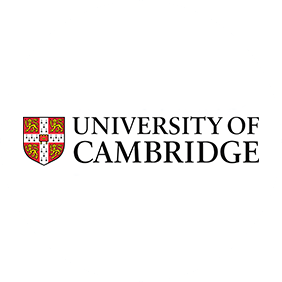Case study
Roadmapping to support strategy and planning
UNIVERSITY OF CAMBRIDGE
Impact
Facilitated a half-day workshop to collect insights from over 40 senior University stakeholders

Created detailed overviews of six key aspirations considering external drivers, challenges and barriers for each
Impact
Facilitated a half-day workshop to collect insights from over 40 senior University stakeholders

Created detailed overviews of six key aspirations considering external drivers, challenges and barriers for each
The challenge
The University of Cambridge (UoC) aspires to build upon its position as a leading and globally respected institution for education, teaching and learning, and to maintain its commitment to academic excellence.
To support this aspiration, the University introduced a new approach to planning with the aim of facilitating a strategy that sought wider input than had been achieved to date. This was to ensure the plans and ambitions of individual schools and non-school institutions were coordinated and aligned with the strategic ambitions in the Vice- Chancellor’s Programme of Action.
One of the great strengths of the collegiate University is that it is collaborative, involving a partnership between students, the colleges and different parts of the University, with all taking shared responsibility for an exceptional educational experience.
To support this strength, any approach selected for the development of a wider strategy would need to facilitate and represent a wide range of stakeholder views, and build understanding and consensus on the best way forward to contribute to the University’s ambitions.
The approach
Roadmapping was selected to facilitate and structure discussions on the development of strategy for the UoC. Roadmapping is a strategic planning technique that enables the development and communication of strategy and innovation. It is used extensively across industry, government and academic organisations to bring clarity to complex problems and alignment of purpose.
Senior stakeholders from across the University, including Pro Vice-Chancellors, Heads of Schools, Secretaries and Directors contributed to pre-work and a half-day workshop, and their views and insights were openly discussed, aligned and documented during the process.
Ahead of the workshop held at the University, IfM Engage captured the perspectives of the most important aspirations, academic rationale, external drivers and challenges from across the central University, schools, non-school institutions and colleges. These were presented to the room at the start of the workshop, and then prioritised in groups using two consideration factors: opportunity and feasibility.
Opportunity was defined as the magnitude of the opportunity plausibly available to the UoC. Considerations in this area included how aspirations enhance excellence, and how the aspiration will underpin efforts to widen access and participation. Feasibility was defined as how well prepared the organisation is to grasp the opportunity. Considerations in this area included questions around resource capacity to deliver on aspirations and whether the aspiration generates contributions to the collegiate University’s financial sustainability.
From the list of prioritised aspirations, six were selected for further discussion and scoping within small expert groups. The groups worked to create detailed outlines of the academic rationale behind each aspiration, the key external drivers, and the barriers and challenges that stand the way of implementing the aspiration.

The results
In a short period of time (a half-day workshop and an input period ahead of the workshop), IfM Engage supported the UoC in:
-
-
- Facilitating discussions with key stakeholders across the University, providing a structure to collect views and insights, and build a view of some of the most important collective aspirations.
- Agreeing a list of priority aspirations through consensus that will form fundamental aspects of the University’s strategy.
- Creating detailed overviews of six of the key aspirations, with details of external drivers, challenges and barriers that were shared with wider stakeholder groups after the workshop.
-

“The process enabled us to effectively discuss and capture the views of key stakeholders from across the University. We now have a more comprehensive view of some of the key aspirations we should be progressing as a collegiate University across a wide range of stakeholders, along with some of the challenges and barriers facings their implementation, which is informing our strategy and planning process. IfM Engage’s help to capture this information in such a short space of time was very impressive – they are a real asset to the University.”
Professor David Cardwell, Pro-Vice-Chancellor for Strategy and Planning, University of Cambridge

“The process enabled us to effectively discuss and capture the views of key stakeholders from across the University. We now have a more comprehensive view of some of the key aspirations we should be progressing as a collegiate University across a wide range of stakeholders, along with some of the challenges and barriers facings their implementation, which is informing our strategy and planning process. IfM Engage’s help to capture this information in such a short space of time was very impressive – they are a real asset to the University.”
Professor David Cardwell, Pro-Vice-Chancellor for Strategy and Planning, University of Cambridge
